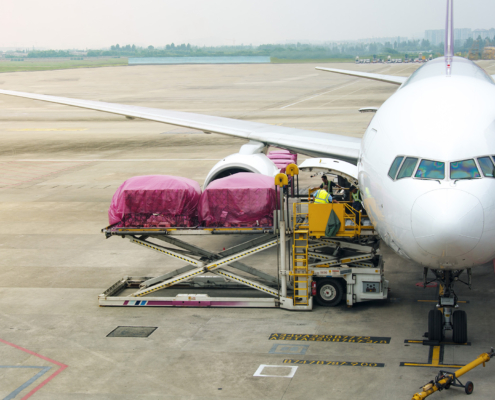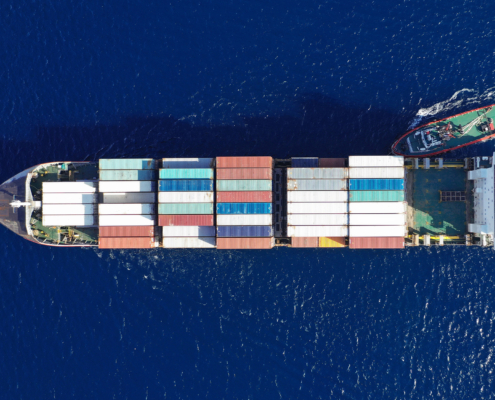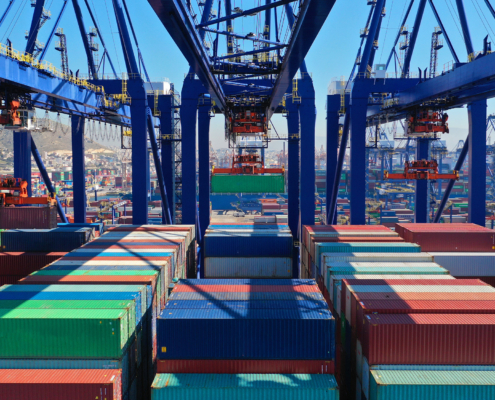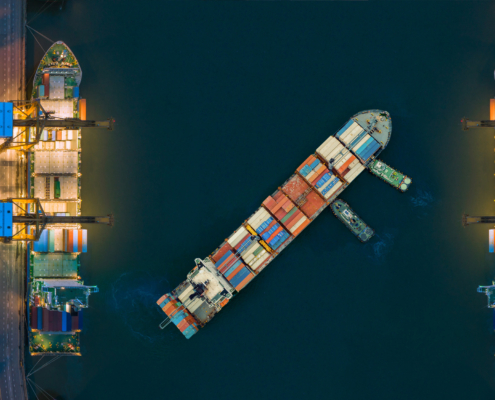 https://cargotransinc.com/wp-content/uploads/2025/02/Airplane-being-loaded-with-packages.jpg
1250
2000
Abstrakt Marketing
https://cargotransinc.com/wp-content/uploads/2025/06/CargoTrans-Logo-Color-300x104.png
Abstrakt Marketing2025-02-25 15:09:022025-11-17 19:16:53Enhancing Retail Supply Chains: The Role of Air Freight in Meeting Consumer Demands
https://cargotransinc.com/wp-content/uploads/2025/02/Airplane-being-loaded-with-packages.jpg
1250
2000
Abstrakt Marketing
https://cargotransinc.com/wp-content/uploads/2025/06/CargoTrans-Logo-Color-300x104.png
Abstrakt Marketing2025-02-25 15:09:022025-11-17 19:16:53Enhancing Retail Supply Chains: The Role of Air Freight in Meeting Consumer Demands9 Challenges of Import and Export Compliance: A Guide for Small and Medium-Sized Businesses
For small and medium-sized businesses, international trade offers exciting opportunities to expand and grow. However, with those opportunities come compliance and logistical challenges. Import and export processes are rife with regulations, compliance requirements, and potential roadblocks that can trip up even the most well-prepared businesses. This guide explores the nine most common obstacles and provides actionable insights for overcoming them.
1. Complex Regulations: A Global Puzzle
Each country has its own import and export laws, tariffs, and trade policies. What’s permissible in one region might face strict controls or prohibitions in another. These varying regulations create a global puzzle businesses must solve to remain compliant.
Accurately classifying goods, understanding import duties, and adhering to specific requirements for each destination are vital to avoiding costly mistakes. Small and medium-sized businesses can greatly benefit from investing in import and export compliance experts or working with freight forwarders who are well-versed in international regulations. Staying current on changing rules and laws can prevent many headaches down the line.
2. The Gatekeepers of Customs Clearance
Without a firm understanding of compliance requirements and thorough documentation, businesses may experience frustrating delays or additional fees. Missing paperwork or incorrectly filled-out customs forms can halt shipments, sometimes for weeks, while the issues are sorted out.
Working with a trusted customs broker or experienced import and export logistics provider can smooth the customs process and ensure your goods clear border checks efficiently. It’s all about being detail-oriented. Accurate declarations, correct documents, and clear communication with customs authorities will keep things running smoothly.
3. The Hidden Costs of Non-Compliance
Failure to comply with international trade laws can result in penalties, fines, and even the seizure of goods. For small businesses operating on tight margins, these fines can have a serious impact. Ignorance of the law is no excuse, and minor infractions can quickly snowball into larger financial burdens.
To mitigate the risk, it’s important to have a compliance plan outlining all applicable trade laws, duties, and taxes for every market you operate in. Regular audits and checks of your import and export processes will also help prevent potential violations that lead to fines.
4. The Financial Impacts of Tariff Codes and Duties
Tariffs, duties, and tax costs vary depending on the product type, country of origin, and specific trade agreements. Failing to account for these expenses can eat into profit margins, especially for smaller businesses that can’t easily absorb unexpected costs.
By thoroughly researching tariff rates and duties before engaging in international trade, businesses can better prepare for the financial impact. Leveraging trade agreements such as NAFTA (now USMCA) can help reduce costs. It’s also crucial to be aware of the classifications of your goods, as different categories can have vastly different tariff rates.
5. Staying Within the Legal Boundaries of Trade Agreements and Sanctions
Many countries have trade agreements that can simplify the customs process and reduce tariffs. However, not all agreements are created equal, and some regions may be under sanctions that limit or restrict trade entirely. Violating trade sanctions can lead to severe penalties, including legal action and reputation damage.
To stay on the right side of international law, businesses should remain up-to-date with trade agreements and economic sanctions. Partnering with logistics providers specializing in international shipments can also help ensure you comply with current regulations.
6. Know the Rules for What You’re Shipping
Hazardous materials, electronics, and even some food products may face strict regulations that require additional permits or special packaging. Shipping restricted items without the proper documentation can result in serious penalties and delays.
Before shipping, it’s important to verify if the product in question has any restrictions or requires special handling. Compliance with packaging, labeling, and transport requirements will ensure that your goods make it through customs safely and without added complications.
7. Frequent Changes in Laws
International trade regulations are not static—they frequently change due to new trade agreements, political factors, or shifts in the global economy. Subscribing to trade news and updates from government bodies can keep you informed of significant regulatory changes. Developing strong relationships with customs brokers or trade compliance professionals can also provide an extra layer of security so your business can quickly adapt when rules shift.
8. The Domino Effect of Supply Chain Delays
Even a seemingly minor mistake, like incorrect documentation, can cause significant delays, which may ripple through the entire logistics network. This disrupts delivery timelines, affects customer satisfaction, and hurts your business’s reputation.
Preventing these delays starts with planning and execution of compliance strategies. When regulations are followed to the letter, customs clearance tends to go smoother, helping avoid disruptions to your supply chain.
9. Time-Sensitive Goods: When Every Minute Matters
Speed is critical for businesses dealing with perishable goods or products that have strict deadlines. Any delay can lead to lost sales, damaged goods, or ruined inventory. Making sure your goods clear customs efficiently and on time is essential to maintaining quality and meeting deadlines.
Working with logistics providers with expertise in handling time-sensitive shipments can reduce the risk of delays. Ensuring that all customs paperwork is correctly completed and submitted promptly will also help to avoid bottlenecks at the border.
Simplify the import and export compliance process with the help of CargoTrans’ documentation and data analysis services.
Technology and Automation in International Shipping
As global trade continues to expand, leveraging technology and automation becomes essential for businesses involved in import and export compliance. Advanced logistics platforms and software solutions streamline operations, enhance compliance, and improve overall supply chain visibility.
The Role of Transportation Management Systems (TMS)
Transportation Management System (TMS) solutions facilitate the planning, execution, and optimization of the transportation of goods. A TMS provides businesses with comprehensive tools for route optimization, carrier selection, and freight auditing. This automation lets logistics managers make informed decisions quickly, reducing transit times and transportation costs. TMS also integrates with other systems, such as warehouse management and inventory control, creating a cohesive logistics environment.
Compliance Tracking Made Easy
Advanced logistics platforms include built-in compliance tracking features that ensure all shipments adhere to the necessary laws and regulations. These systems help businesses stay up-to-date with changing regulations and avoid costly penalties. Through automated compliance checks, businesses can easily verify documentation, confirm the correct classification of goods, and confirm tariffs and duties are calculated accurately.
Real-Time Updates and Visibility
Advanced logistics platforms offer GPS tracking and monitoring capabilities that allow businesses to keep tabs on their goods throughout the shipping process. This visibility is crucial for effective supply chain management. With real-time updates, businesses can anticipate delays, reroute shipments as needed, and maintain open lines of communication with customers.
Documentation Management Simplified
Logistical platforms automate the creation, storage, and sharing of essential shipping documents, such as bills of lading, customs declarations, and invoices. By digitizing documentation processes, businesses improve workflows, making managing the necessary paperwork for each shipment easier. Additionally, cloud-based storage solutions allow for easy access to documents from anywhere, facilitating collaboration among team members and stakeholders.
Have Peace of Mind Over Your International Freight Shipping With the Import and Export Compliance Experts
CargoTrans’ compliance experts help you navigate the complexities of import and export regulations so your shipments meet all requirements. With our dedicated support and advanced technology, you can focus on your business while we handle the details!











